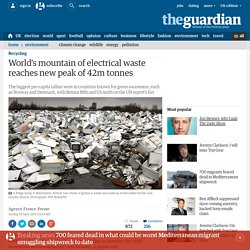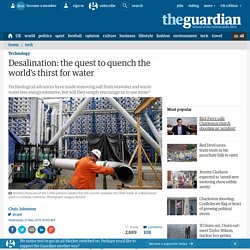

Siberia's tug of war over Lake Baikal's water. : An earlier version of this story accidentally misnamed ecologist Marina Rikhvanova, a leading environmentalist who received a Green Nobel prize in 2008.

Al Jazeera apologises for the error. Ranzhurovo, Russia - Nikolay Penoyev stands in the middle of an empty field blanketed in snow. Next to him on the barren ground rests a speedboat. "This boat is meant to be on water," Penoyev says, pointing to the grounded vessel. "We're standing in the middle of a river. Penoyev is chief of Ranzhurovo, a Siberian village stricken by a water crisis. The water level of Lake Baikal - the world's deepest and oldest freshwater lake and a UNESCO world heritage site - has reached its lowest point in 60 years, plummeting below the minimum level designated by the government as critical.
Last year, hydroelectric dams were allowed to increase their release of water, but as precipitation fell well short of the predicted amount, water levels in the lake dropped more than 40cm. Hard life for villagers. World's mountain of electrical waste reaches new peak of 42m tonnes. A record amount of electrical and electronic waste was discarded around the world in 2014, with the biggest per-capita tallies in countries that pride themselves on environmental consciousness, a report said.

Last year, 41.8m tonnes of so-called e-waste – mostly fridges, washing machines and other domestic appliances at the end of their life – was dumped, the UN report said. That’s the equivalent of 1.15m heavy trucks, forming a line 23,000km (14,300 miles) long, according to the report, compiled by the United Nations University, the UN’s educational and research branch. Less than one-sixth of all e-waste was properly recycled, it said. In 2013, the e-waste total was 39.8m tonnes – and on present trends, the 50-million-tonne mark could be reached in 2018. Topping the list for per-capita waste last year was Norway, with 28.4kg (62.5lbs) per inhabitant. The region with the lowest amount of e-waste per inhabitant was Africa, with 1.7kg per person.
Water: the weirdest liquid on the planet. Water is the only substance on Earth whose chemical formula has entered the vernacular.

We all know H2O, even if we don’t understand precisely what it means. But if it sounds simple, the reality is different. This common, seemingly boring substance baffles and confuses anyone who peers at it for long enough. Water breaks all the rules. Since the 19th century, chemists have developed a robust framework to describe what liquids are and what they can do. Ice floats because water expands when it freezes. Through aeons of cycles of freezing and melting, water has seeped into giant boulders, cracked those rocks apart and broken them up into soil. Water is at its most dense at 4C and, at that temperature, will sink to the bottom of a lake or river. This, though, is just the start. If you thought that was strange, how about this: hot water freezes faster than cold water. HLPE-Report-9_EN. Desalination: the quest to quench the world's thirst for water. The average Briton uses 150 litres of water a day; the average American gets through 570 litres of the stuff.

The world is getting thirstier and the global demand for fresh water is rising by 640bn litres a year. Population growth is one factor, not only the need for drinking water and sanitation but also the need to produce more food. Agriculture accounts for 70% of water use. Even the push for biofuels to reduce consumption of fossil fuels has an unexpected consequence: between 1,000 and 4,000 litres of water are needed to produce just one litre of biofuel. While reducing consumption is one way of helping to address the water crisis on an individual level, it is far from the complete solution.
As climate change makes rainfall less predictable and droughts more common, a growing number of countries are turning to desalination. But technological advances in recent years have altered the equation. No alternative Saltwater greenhouses Even London now has a seawater desalination plant.